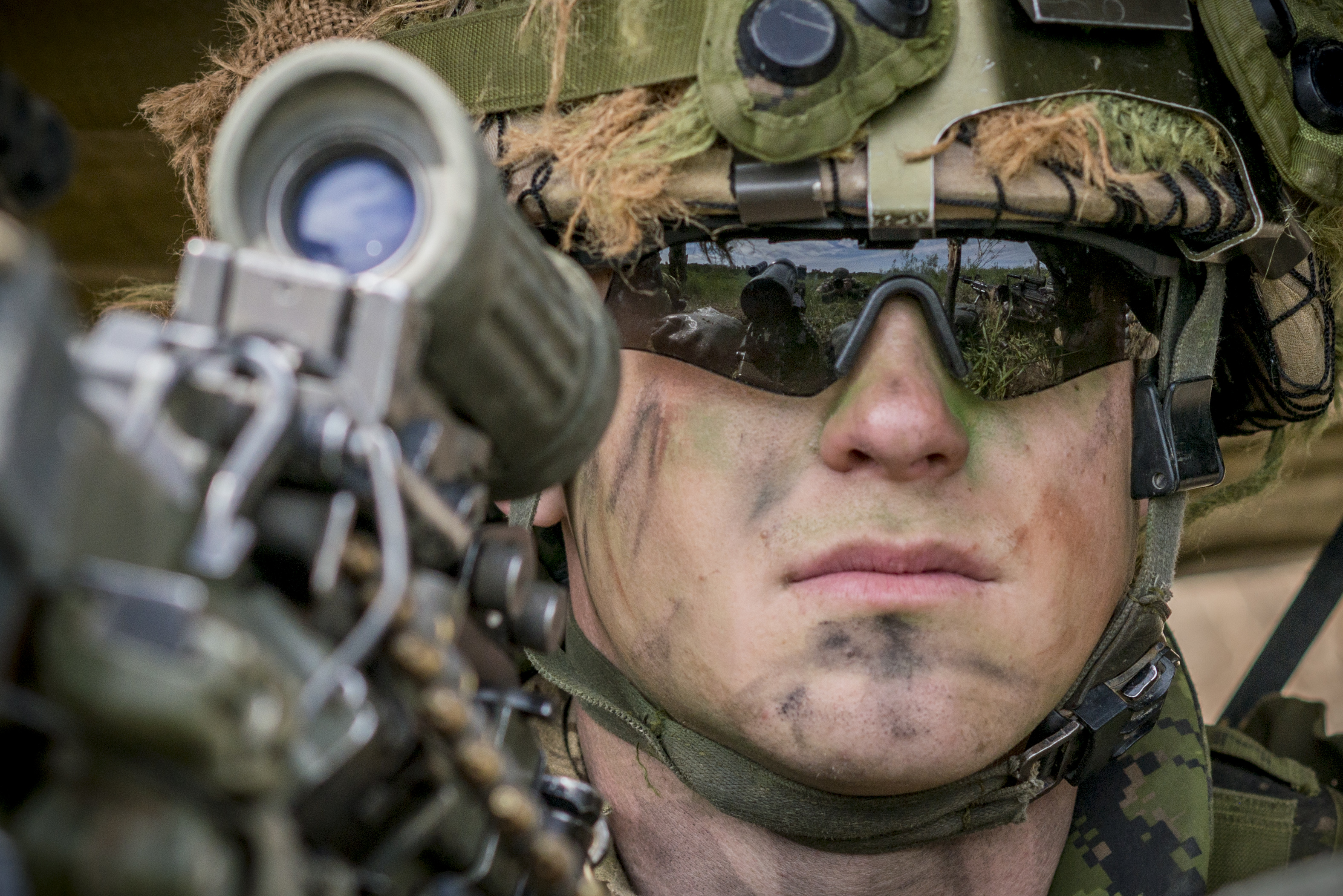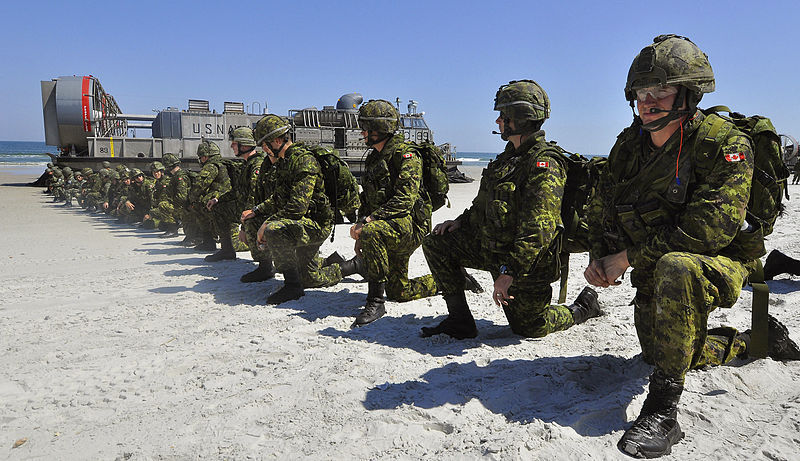The aim of this three-part series is to provide a perspective on the current defence policy review and answer three select questions raised by the DND review:
1. Are there any threats to Canada’s security that are not being addressed adequately?
2. What form should the CAF contribution to peace support operations take?
3. What resources will the CAF require to meet Canada’s defence needs?
Denied Access to the Global Commons as a Threat to Canada’s Security
Over the better part of the last decade, assured access to the global commons by NATO member states and their armed forces has been identified as a key intermediate and near term planning challenge for NATO and its Strategic Commanders. As evidenced in the NATO Assured Access to the Global Commons project report, spearheaded by Supreme Allied Command Transformation in Norfolk Virginia, Alliance analysts, academics, and staff officers have identified future denied access to shared global sea, air, space, and cyberspace realms as a key area of concern to the “security and prosperity of our nations, individually and for the Alliance as a whole”.
In asking Canadians if there are any threats to Canada’s security that are not being addressed adequately, Canada’s upcoming defence policy must consider the complex challenges that denial to the commons will have for Canada’s national security, economic prosperity, and overall strategic success in the coming decades.
The global maritime domain is the oldest and easily understood realm of the commons. It is our understanding of the free navigation of the oceans that has provided the foundation for understanding all of the other domains. As the global maritime domain becomes an increasingly congested environment, evolving threats to the access to the maritime commons and our ability to trade globally will be challenged. According the 2015 Transportation Canada Annual Report, the value of Canadian waterborne trade in 2015 totaled $205 billion dollars and as a resource based economy, it is unquestionably essential that Canadian oil, gas, lumber and agricultural products, reach their markets safely via global maritime trade routes.
With a merging of hybrid threats where both merchant and war ships are increasingly exposed to non-state driven criminality ashore spreading out to the seas and with nations challenging the openness of international sea lanes and maritime choke points, Canadian trade and freedom of navigation for its warships have the potential of negative impact on Canadian commerce and future operations conducted by the CAF.
Like the maritime domain, free access to the international air commons is a critical enabler to Canadian participation in the global supply chain system and terrestrial based terrorism and large-scale attacks on air traffic systems by home grown terrorists within Canada is a potential reality. Persons or groups aiming to disable, disrupt, and diminish the ability of air operations have affected Canada’s Belgian and Turkish Allies in most recent times. To make certain that Canada’s airports and air corridors leading to international airspace do not become areas of access for terrorism, government agencies, including the CAF, will increasingly need to work together in a whole of government approach.
In the realm of space, while Canada has never been considered a major player in its exploration or conducted independent missions, its contributions and reliance on the openness of the space commons is significant. The immediate threat to Canada in the cosmic commons lies in the increasing reliance upon space-borne technology by the CAF during over-seas operations and Canadian businesses at home. As more state actors become active in gaining access to earths orbit, and possibly beyond, Canada’s contribution to space exploration and study is critical.
In the context of the cyber commons and more specifically cyber security, Canadian government and private sector entities have fallen victim to cyber attack. In 2015, Canada’s Security and Intelligence Service (CSIS) was the subject of a denial-of-service attack along with several other government websites. Following this attack, CSIS director Michel Coulombe commented publicly that attacks on critical infrastructure by extremist groups are a “major threat” to Canadian security. It is believed by Canadian information security experts that the number of attacks on Canadian organizations has increased by 17% in 2015 and that in over half the cases, sensitive information on Canadians had become exposed.
So what do these threats aimed at undermining our democratic system, disrupting our free markets, draining precious national resources, and inhibiting the development of stable societies globally mean for the Canadian Armed Forces? As evidenced above, it is a simple deduction that many of Canada’s strategic interests lie in the openness of the commons and this will require a priority to invest in Canada’s capabilities centered on cross-domain awareness, military transformation, and a Whole of Government Approach to name a few.
The strategic realities of what some may call “over the horizon threats” to the global commons may not be evident to all Canadians who have become accustomed these day-to-day issues concerned with the operation of the CAF. To ensure that we do not shortchange future generations or throw away the hard work invested in identifying future challenges to both Canada and the Alliance, planners assigned to the Defence Policy Review should be encouraged to engage the resources available to them through the NATO Alliance. They would then be better prepared to conduct a holistic examination of threats at the strategic level and plan for and ensure that Canada’s national interests, sovereignty, and standing in a complex, yet opportune 21st century global environment are protected.
Co-Author: Marko Babic is a former Strategic Analyst with the Future Capabilities Research & Technologies Subdivision at NATO HQ, Supreme Allied Commander Transformation in Norfolk, Virginia. Marko graduated from McMaster University with a Bachelor of Arts in History in 2002 and has served with the Canadian Army Reserve since 2004 as an Infanteer, a Canadian Ranger & most recently as an Armoured Reconnaissance Officer. When not in uniform, Marko serves as the CEO of Alpha Soteria HSSE Ltd based in Hamilton, Ontario.
Photo: Private Ryan Mordan of 1st Battalion, The Royal Canadian Regiment scans the horizon for enemies during Exercise MAPLE RESOLVE in Wainwright, Alberta (2016), by Cpl Andrew Wesley, Directorate of Army Public Affairs via Combat Camera Canadian Armed Forces.
Disclaimer: Any views or opinions expressed in articles are solely those of the authors and do not necessarily represent the views of the NATO Association of Canada.



